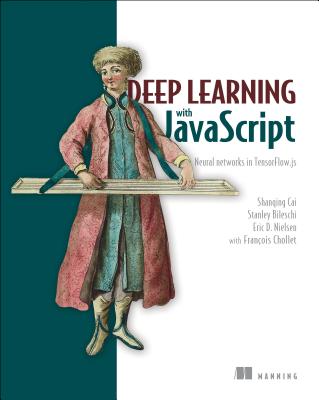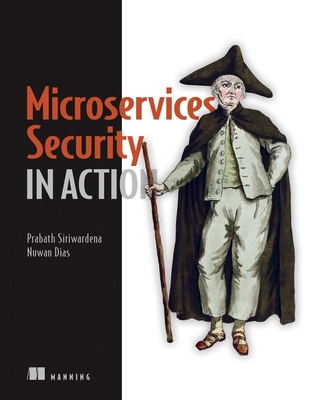Code/Space: Software and Everyday Life (Hardcover)
暫譯: 程式碼/空間:軟體與日常生活 (精裝版)
Rob Kitchin, Martin Dodge
- 出版商: MIT
- 出版日期: 2011-04-22
- 售價: $1,980
- 貴賓價: 9.5 折 $1,881
- 語言: 英文
- 頁數: 304
- 裝訂: Hardcover
- ISBN: 0262042487
- ISBN-13: 9780262042482
海外代購書籍(需單獨結帳)
買這商品的人也買了...
-
 $2,280Working Effectively with Legacy Code (Paperback)
$2,280Working Effectively with Legacy Code (Paperback) -
 Expressive Processing: Digital Fictions, Computer Games, and Software Studies (Hardcover)
Expressive Processing: Digital Fictions, Computer Games, and Software Studies (Hardcover)$1,220$1,196 -
 Programmed Visions: Software and Memory (Hardcover)
Programmed Visions: Software and Memory (Hardcover)$1,225$1,201 -
 Spring in Action, 4/e (Paperback)
Spring in Action, 4/e (Paperback)$1,900$1,805 -
 Arduino 官方正版 Genuino 101
Arduino 官方正版 Genuino 101$1,700$1,700 -
 Raspberry Pi 3 Model B+ (UK製)
Raspberry Pi 3 Model B+ (UK製)$4,620$4,389 -
 JVM Performance Engineering: Inside OpenJDK and the HotSpot Java Virtual Machine (Paperback)
JVM Performance Engineering: Inside OpenJDK and the HotSpot Java Virtual Machine (Paperback)$1,980$1,881 -
 晉昇軟體最高殿堂:Jenkins2 持續整合大師之路
晉昇軟體最高殿堂:Jenkins2 持續整合大師之路$600$474 -
 Deep Learning with JavaScript: Neural Networks in Tensorflow.Js
Deep Learning with JavaScript: Neural Networks in Tensorflow.Js$1,650$1,568 -
 JavaScript 技術手冊
JavaScript 技術手冊$560$442 -
 Building a Future-Proof Cloud Infrastructure: A Unified Architecture for Network, Security and Storage Services (Paperback)
Building a Future-Proof Cloud Infrastructure: A Unified Architecture for Network, Security and Storage Services (Paperback)$1,998$1,898 -
 Microservices Security in Action
Microservices Security in Action$1,980$1,881 -
 Java SE 14 技術手冊
Java SE 14 技術手冊$680$537 -
 Parallel and High Performance Computing (Paperback)
Parallel and High Performance Computing (Paperback)$2,450$2,328 -
 $1,840Multithreaded JavaScript: Concurrency Beyond the Event Loop
$1,840Multithreaded JavaScript: Concurrency Beyond the Event Loop -
 $2,475Software Architecture: The Hard Parts: Modern Trade-Off Analyses for Distributed Architectures (Paperback)
$2,475Software Architecture: The Hard Parts: Modern Trade-Off Analyses for Distributed Architectures (Paperback) -
 Structure and Interpretation of Computer Programs: JavaScript Edition (Paperback)
Structure and Interpretation of Computer Programs: JavaScript Edition (Paperback)$2,680$2,626 -
 $1,824Mastering API Architecture: Design, Operate, and Evolve Api-Based Systems (Paperback)
$1,824Mastering API Architecture: Design, Operate, and Evolve Api-Based Systems (Paperback) -
 OAuth 2.0 從入門到實戰:利用驗證和授權守護 API 的安全
OAuth 2.0 從入門到實戰:利用驗證和授權守護 API 的安全$600$510 -
 $2,233Functional and Concurrent Programming: Core Concepts and Features
$2,233Functional and Concurrent Programming: Core Concepts and Features -
 $1,805Functional Design: Principles, Patterns, and Practices (Paperback)
$1,805Functional Design: Principles, Patterns, and Practices (Paperback) -
 OpenTelemetry 入門指南:建立全面可觀測性架構(iThome鐵人賽系列書)【軟精裝】
OpenTelemetry 入門指南:建立全面可觀測性架構(iThome鐵人賽系列書)【軟精裝】$750$375 -
 $2,043Learning Systems Thinking: Essential Nonlinear Skills and Practices for Software Professionals (Paperback)
$2,043Learning Systems Thinking: Essential Nonlinear Skills and Practices for Software Professionals (Paperback) -
 Collaborative Software Design: How to Facilitate Domain Modeling Decisions
Collaborative Software Design: How to Facilitate Domain Modeling Decisions$1,980$1,881 -
 $2,119Mastering Opentelemetry and Observability: Enhancing Application and Infrastructure Performance and Avoiding Outages
$2,119Mastering Opentelemetry and Observability: Enhancing Application and Infrastructure Performance and Avoiding Outages
商品描述
After little more than half a century since its initial development, computer code is extensively and intimately woven into the fabric of our everyday lives. From the digital alarm clock that wakes us to the air traffic control system that guides our plane in for a landing, software is shaping our world: it creates new ways of undertaking tasks, speeds up and automates existing practices, transforms social and economic relations, and offers new forms of cultural activity, personal empowerment, and modes of play. In Code/Space, Rob Kitchin and Martin Dodge examine software from a spatial perspective, analyzing the dyadic relationship of software and space. The production of space, they argue, is increasingly dependent on code, and code is written to produce space. Examples of code/space include airport check-in areas, networked offices, and cafés that are transformed into workspaces by laptops and wireless access. Kitchin and Dodge argue that software, through its ability to do work in the world, transduces space. Then Kitchiun and Dodge develop a set of conceptual tools for identifying and understanding the interrelationship of software, space, and everyday life, and illustrate their arguments with rich empirical material. And, finally, they issue a manifesto, calling for critical scholarship into the production and workings of code rather than simply the technologies it enables--a new kind of social science focused on explaining the social, economic, and spatial contours of software.
商品描述(中文翻譯)
在最初開發後僅僅過了半個世紀,電腦程式碼已經廣泛而深刻地融入我們日常生活的各個層面。從喚醒我們的數位鬧鐘到引導飛機安全降落的空中交通管制系統,軟體正在塑造我們的世界:它創造了執行任務的新方式,加速並自動化現有的做法,改變社會和經濟關係,並提供新的文化活動形式、個人賦權和遊戲模式。在《Code/Space》一書中,Rob Kitchin 和 Martin Dodge 從空間的角度檢視軟體,分析軟體與空間之間的二元關係。他們主張,空間的生產越來越依賴於程式碼,而程式碼則是為了生產空間而編寫的。程式碼/空間的例子包括機場登機區、網路辦公室,以及因筆記型電腦和無線網路接入而轉變為工作空間的咖啡館。Kitchin 和 Dodge 認為,軟體透過其在世界中工作的能力,轉換了空間。接著,Kitchin 和 Dodge 發展出一套概念工具,以識別和理解軟體、空間與日常生活之間的相互關係,並用豐富的實證材料來說明他們的論點。最後,他們發表了一份宣言,呼籲對程式碼的生產和運作進行批判性的學術研究,而不僅僅是對其所啟用技術的研究——這是一種新的社會科學,專注於解釋軟體的社會、經濟和空間輪廓。














